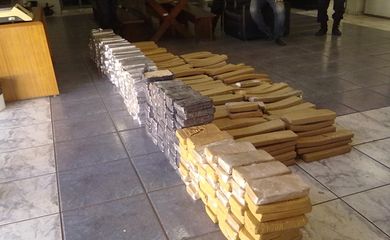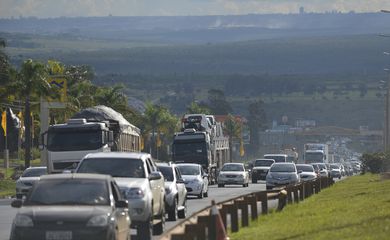Drug trafficking impacts prison population levels in Brazil


Brazil's prison population is growing significantly, and drug trafficking is a major factor.

Brazil's prison population is growing significantly, and drug trafficking is a major factor. According to the National Prison Department (DEPEN), the number of people imprisoned on drug trafficking charges in the country tripled from 50,000 to 150,000 between 2005 and 2013. The link between drugs and prison population was discussed by the United Nations Development Programme (UNDP) on Monday (Apr. 27).
According to Victor Pimenta, Alternative Sentencing Coordinator for DEPEN, Brazil's prison population grew 60% between 2005 and 2013. “People jailed for offences related to [drug] trafficking account for 46% of that number. You can't revise the current mass incarceration policy unless you change this drug-related imprisonment standard,” he said.

UNDP Justice and Human Rights Officer Moema Freire (Marcelo Camargo/Agência Brasil)
As UNDP Justice and Human Rights Officer Moema Freire explains, Brazilian law distinguishes between drug users and dealers, but the blurry boundaries make it difficult to tell them apart. This is reflected in larger prison populations. “Often a stricter and harsher approach is taken at the law enforcement level. This means more people ending up in the prison system instead of receiving drug rehabilitation or alternative sentences.”
Prosecutor Maria Teresa Gomes gives an example: “Since there's no clear distinction, petty drug dealers [caught] with one or three grams often get the same punishment given to major dealers carrying over a ton.”
The UNDP event also discussed the impact of lowering the age of criminal responsibility on prison population levels. According to Moema Freire, the debate on drugs and prison population was a first step. “The UNDP is now planning to set up a working group with participating entities in order to work on the proposed solutions.”
Translated by Mayra Borges
Fonte: Drug trafficking impacts prison population levels in Brazil




